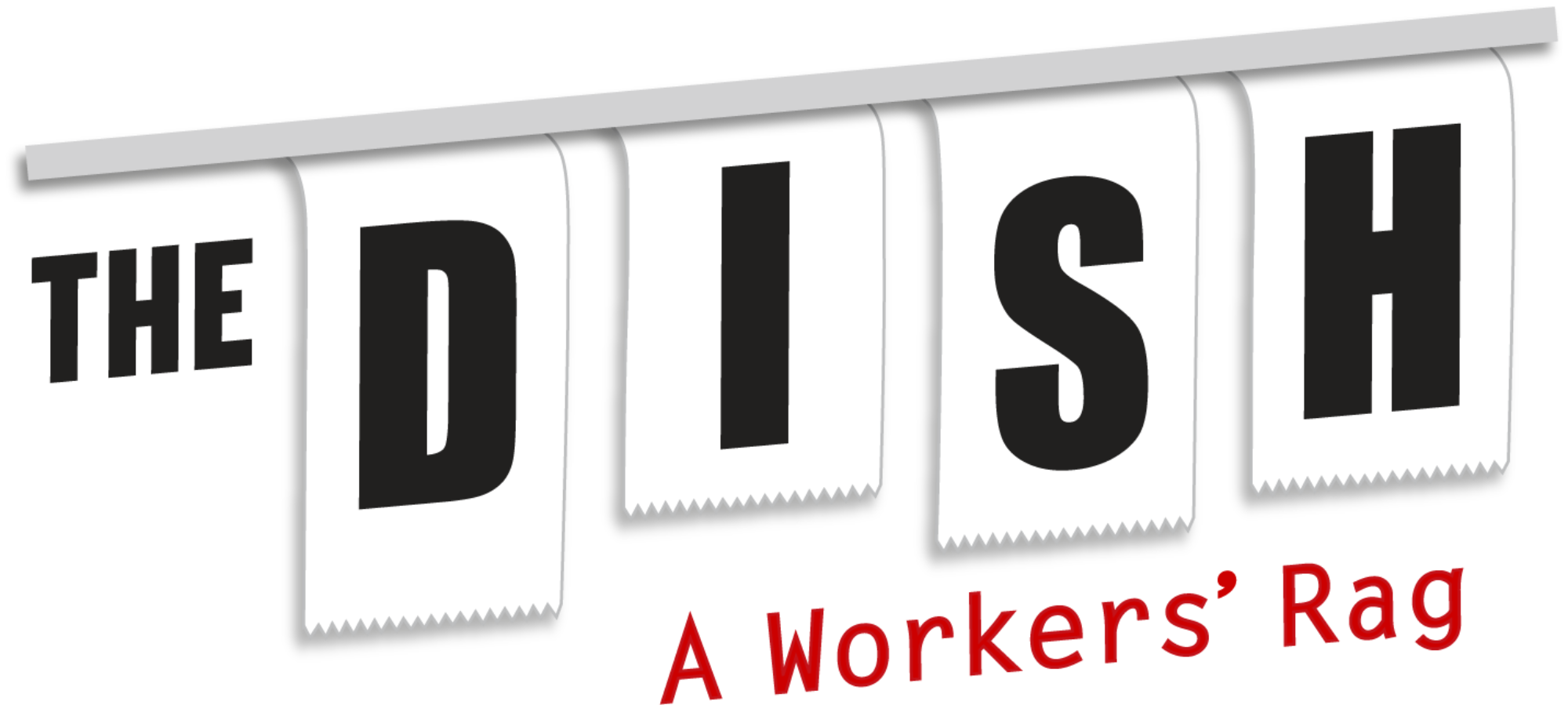by German Lara, (he/him), Tongva land, Los Angeles CA
I can recall the warehouses full of dust and mice. I was one of the new workers from the temp agency sharing lunch breaks with a coworker who was soon discarded after suffering an injury at work. He was let go after 30 years of service. Sitting in the dusty break room looking around the room as if he was going to miss it. He was broken, defeated. I could see and feel his pain vividly.
With no worker protections, even a doctor’s note stating his illness was caused by years of inhaling dust on the job, he had no defense. It was over before it started. That was the last time I saw him.
Under the current law, if the National Labor Relations Board (NLRB) doesn’t take your case, you have no chance of fighting your case yourself.
As workers, particularly the descendants of immigrants, we think work is life. We think work is everything, and with it all things are achieved. But with that comes the belief of “it is what it is.”
The belief that we do not and cannot have more bargaining power to increase our wages and have better hours. In addition to all the benefits and amenities a worker rightfully deserves.
It is untrue that nothing will change, we can have everything!
I was born in California on a visa pass that my mother was able to obtain. I became, by default, an American citizen.
As a citizen, I quickly saw the advantages that I had over my extended family, other neighborhood kids, and even my parents. The privilege appeared stupid to me. My mom beat time and flew herself across man-made borders; I got lucky.
But, I felt cursed.
I started working at a young age, mostly alongside my father on home improvement projects. The first official job I had was when I was 15 years old. Subway.
It was there that I first witnessed worker exploitation on the job. Management would pretend to “hire” my friends and train them. They gave them a day of work or two but never actually employed them past that. Under this guise of “training,” they successfully pulled this off two weekends in a row; all during rushes. They normalized this under the guise of “you just don’t work hard enough” and “school is not for you! Work!”
After those years of what seemed like endless, fruitless and empty employment, I resorted to temp work through a job agency. It was then that I got my first taste of large scale, contract, “legal” exploitation of workers.
As a young college student maneuvering life, sleeping in cars and crashing at friend’ places, I was so worried about hitting that “homeless” stage we, as Americans, fear but feel so far from. We just call it “rocking ‘n rolling” although it’s a lot quieter than that. And lonelier.
With rent due, bills and debt piling up, my only hope of employment was in the kitchen world. Doing what seemed to be the only job that would hire me.
There was an assumption of, “Oh yeah, I was born here, so I’m not going to get screwed as much as my undocumented coworkers.”
That couldn’t have been more untrue.
The back of the house is a wild west of an industry. It’s not a lawless land, but rather an authoritarian stronghold. The owners, chefs, business people, who co-opted legal ways of exploitation and who accost their workers at even the slightest hint of wrongdoing. This gritty underworld hides behind a facade of the “independent” or “family-run” business. These jobs are a hotbed of wage theft and labor exploitation.
Every time I have tried to organize in a workplace – whether it be done casually or openly – it has failed. I had to learn to live with the exploitation. There “was no way around it”, as my Mom often says.
Many times, those organizing attempts were stifled by fellow workers.
Workers with more years at a particular job or that particular industry.
Workers with an individualistic sense of pride in their work, but an anti-organizing outlook.
Workers who believed we had the power, but we would lose our employment through uprising or walking out.
Fear. Fear of losing income.
For me, it was my fear of returning to an unstable place, back to couch surfing and not having a home or room of my own.
And so, like a boxer taking punches, we eat up each hit with the hope of survival.
But, there is hope. The PRO Act can change the playing field and challenge the tactics the employing class uses at its leisure against the working class.
It will give workers teeth.
With the PRO Act, workers will be better equipped to present their cases more immediately and effectively, while closing loopholes bosses have used for years. It will be the biggest policy protection for workers in decades and massively update the National Labor Relations Act.
It’s these types of direct actions, campaigns such as the PRO Act made of a coalition of working class movements fighting to pass into law meaningful protections, that can bring about the progress that we collectively need.
